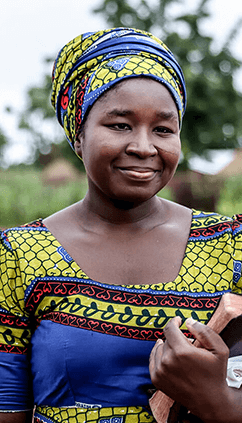
Story by Anton de Vreugd, Communications Specialist for Bible League International
Lake Sevan is a major tourist attraction in land-locked Armenia. It is located in the east-central part of the country. On the northwestern lakeshore, there is a small peninsula with an ancient monastery called Sevanavank. High on a hilltop, rugged little churches dating back to the ninth and tenth century, are overseeing the waters. The rich Christian heritage of Armenia is dished up here in sizable, tasteful portions. A heritage that to date shapes the nation’s spirituality in a large measure. A heritage, too, that is both a challenge and an opportunity for the ministry of Bible League, as we will learn during a conversation in the nearby Sevan Baptist Church.
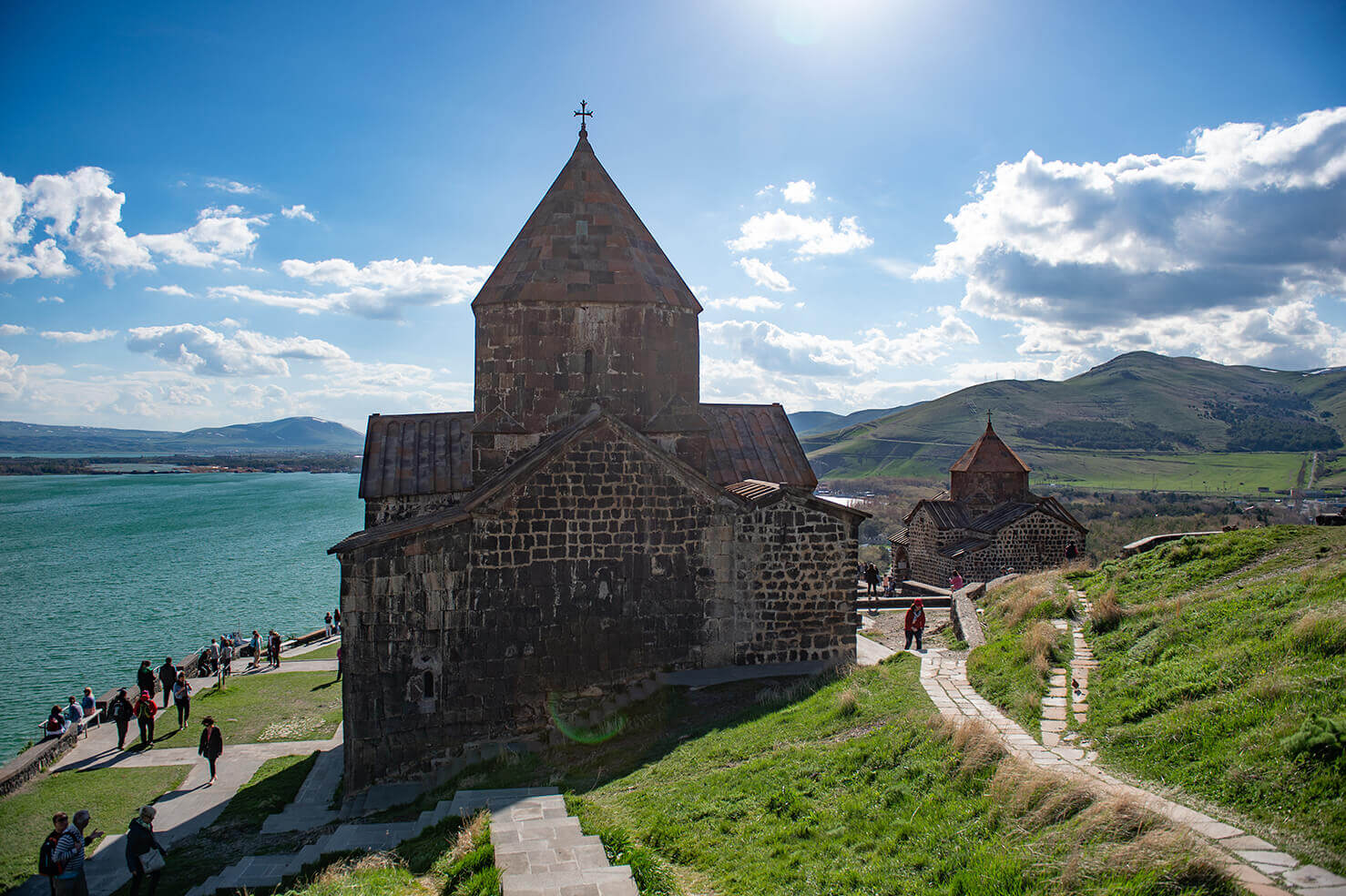
Ancient churches at Sevanavank monastery overlooking Lake Sevan.
I traveled with sister Manik, National Director of Bible League Armenia, brother Alex*, a volunteer for the organization, Lilit, a young lady who leads the church’s children’s ministry, and Mart from Bible League’s Dutch funding partner to visit with Brother Arman, a Church Planter Training facilitator in Armenia. He serves as the pastor of this church at the outskirts of the city that bears the same name as the lake, Sevan. We speak with him over a table that offers a plentiful variety of sweets, cake, and fruit, as well as small cups of that delicious, strong, black, Armenian coffee.
“My wife and I came here in 2007 to start a church,” Pastor Arman looks back, “but we didn’t know anybody here. So, we made some friends here, started several small groups and eventually, a home church. Over the years, we were able to purchase, renovate, and decorate this building, with the help of other churches. Our partnership with Bible League started last fall,” he says.
“I was invited to join a Church Planter Training of trainers last year. So, I became one of their trainers and that’s how the partnership started. Bible League is very helpful with the booklets, which are good tools for both children and adults to do Bible study. We are very thankful to Bible League for this.”
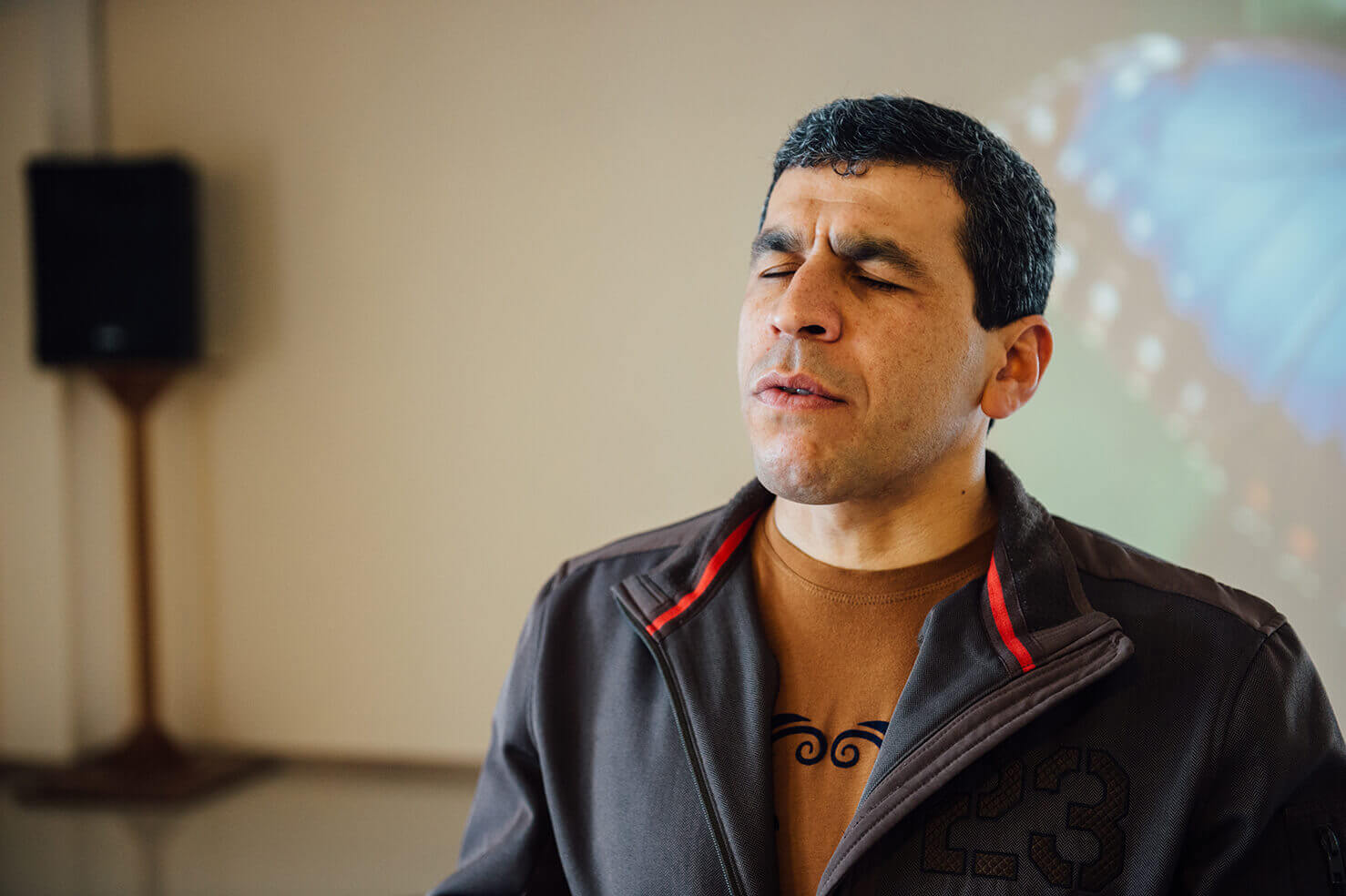
Pastor Arman, Bible League International partner.
Children’s Meeting
When we arrived at the Baptist Church that afternoon, we were just in time to witness a children’s Bible study meeting. It started with some energetic songs; the children especially liked the one about David and Goliath. During the chorus, they all circled their right arms vigorously as if slinging the pebble to the giant’s face.
Teacher Lilit, a young lady with an expressive, narrow face who wears her bleached hair in a simple ponytail, uses beautiful, colorful plates to tell the 16 kids about the reason why Jesus Christ came into this world. Together, they recited the famous verse from John 3:16, after which Lilit told them the story of Zacchaeus. “We have a choice,” she taught the young ones. “Either we reject Jesus, and that means that we end up in a terrible place, or, we choose to live with Jesus, and He’ll bring you to an eternal life with Him.”
When the lesson was done, the children were greatly excited to receive their own Bible story book. Lilit pointed out where they could find the story of Zacchaeus, encouraging the children to read it carefully at home. In case they would have questions, they would go over these during the next meeting.
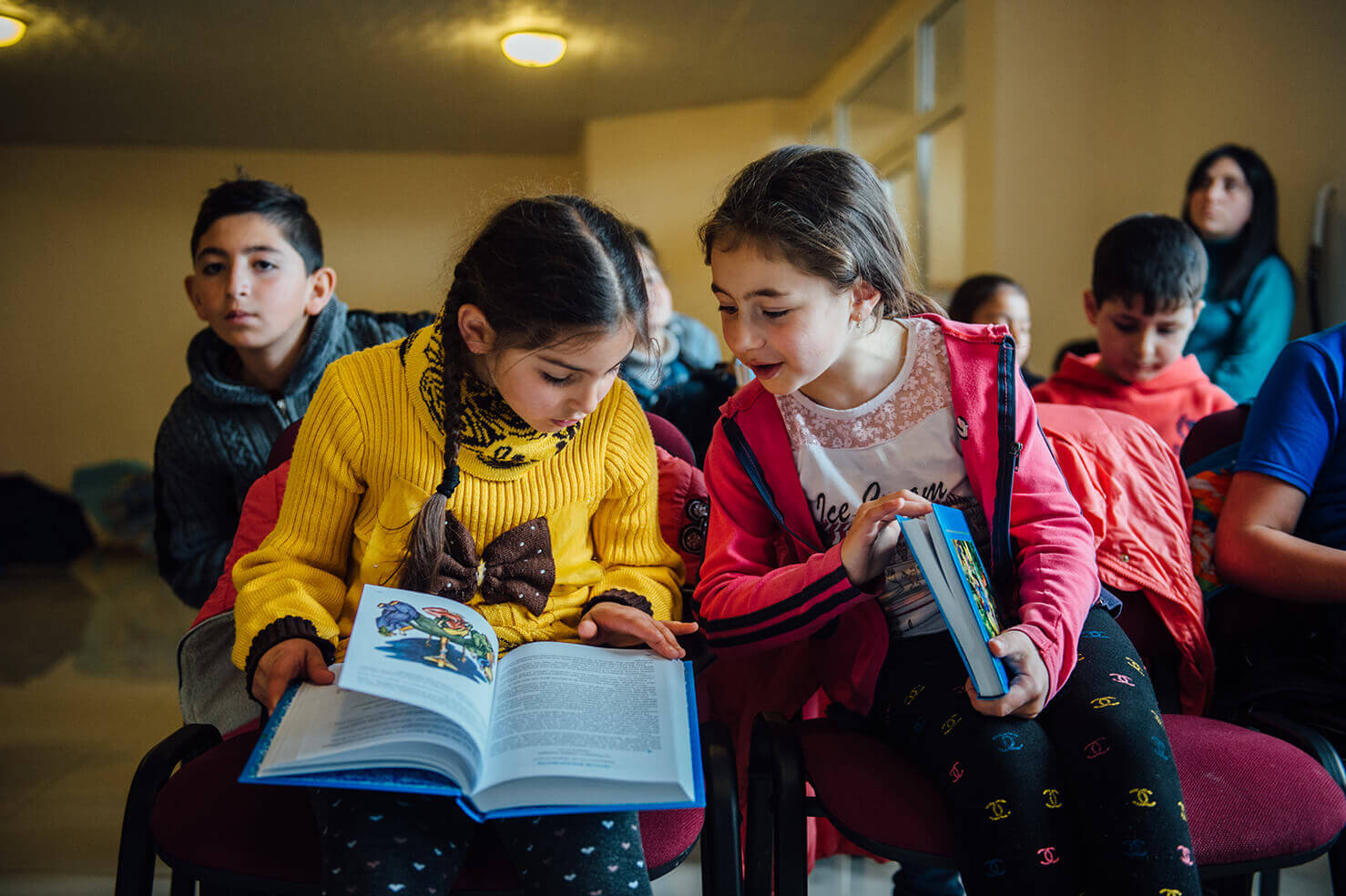
Children’s ministry is a vital part of the work in Armenia.
Unique Opportunity
“If it wasn’t for Bible League,” I ask Arman, “would you have had any other opportunity to get books like the Bible Stories for Children, or the regular Bibles?”
Arman shakes his head. “I think Bible League is unique in that case. There is no other organization that provides Bibles and books for free. Actually, in our church, it’s the first time ever we get Bibles for children!” He looks up and laughs. “In my childhood, it was a rarity to have one. So, these children are blessed. I don’t know if they realize that or not, but we know they are blessed!”
“We have started using the Project Philip Bible study booklets in our small groups,” he continues. “We were used to doing Bible study in groups, but without a booklet. Now, with the materials of Bible League, the participants have the tools for themselves to take home and study. They do the tasks at home and when they are here for the group study, we discuss these. Obviously, this helps them to learn better, and they love it! So, yes, we are thankful for Project Philip.”
“There is no other organization that provides Bibles and books for free. Actually, in our church, it’s the first time ever we get Bibles for children! In my childhood, it was a rarity to have one. So, these children are blessed. I don’t know if they realize that or not, but we know they are blessed!”
Reaching Parents
Sister Manik asks, “Is it possible for you to reach the adults, the parents, through the children’s ministry?”
After thinking a while, Pastor Arman responds, “It is possible, but it is difficult. You know, many parents send their children here so that they themselves can have an hour of rest at home. That’s why they say it’s okay for their children to go to church, not because of the program.”
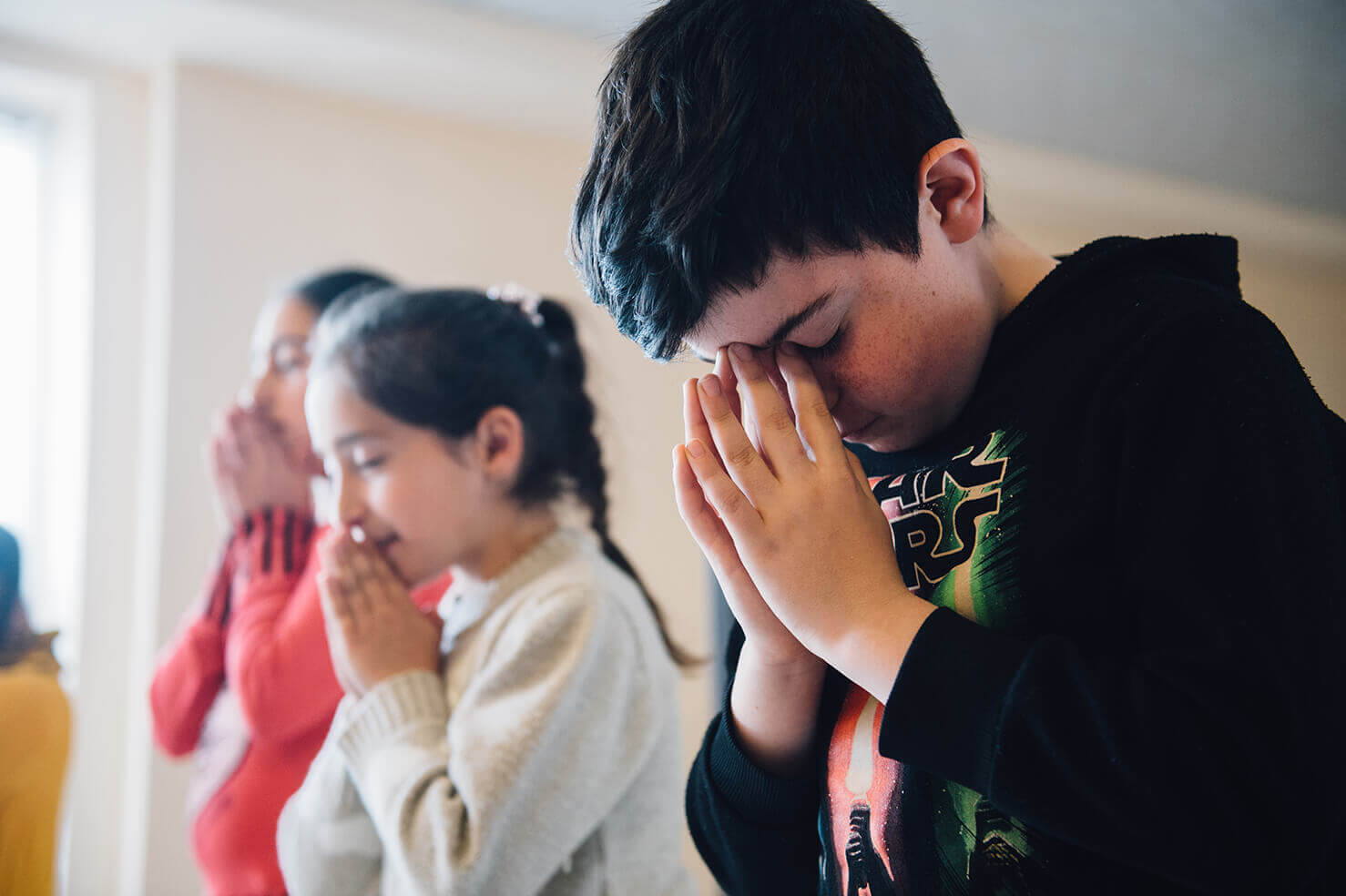
Children praying during a lesson.
He pauses for a moment, searching for the right English words to express himself properly. “There is a need to work with adults, which we not always do. Or, not as we should. In order to get the parents to come to church, we need to visit each home, and to do so as much as possible. It’s about personal relationships. We must visit them, speak to them, build a close relationship. Then, probably, some of them will start to come, but not all at once. On top of that, when we tell an Armenian he needs to be a Christian, he’ll say, ‘I already am a Christian.’ That’s a challenge as well!”
Christians Versus Believers
Alex explains, “That is because of the Armenian heritage. As an Armenian, your forefathers have always been Christians, which means you are a Christian, too. And you’re proud of that heritage. But at the same time, to these ‘traditional’ Christians, the Bible often has no value at all.”
“That’s why in Armenia, we make a distinction between Christians and believers,” Pastor Arman says. “When we talk about Christians, we mean traditional, nominal Christians. Being an Armenian simply means being a Christian. When we call someone a believer, that means he is a follower of Christ.”
“So, Armenian Christians don’t necessarily see themselves as believers?” I ask. To which both Arman and Alex reply at the same time, “No!”
“Are they open for the Gospel, to become a believer?” I respond.
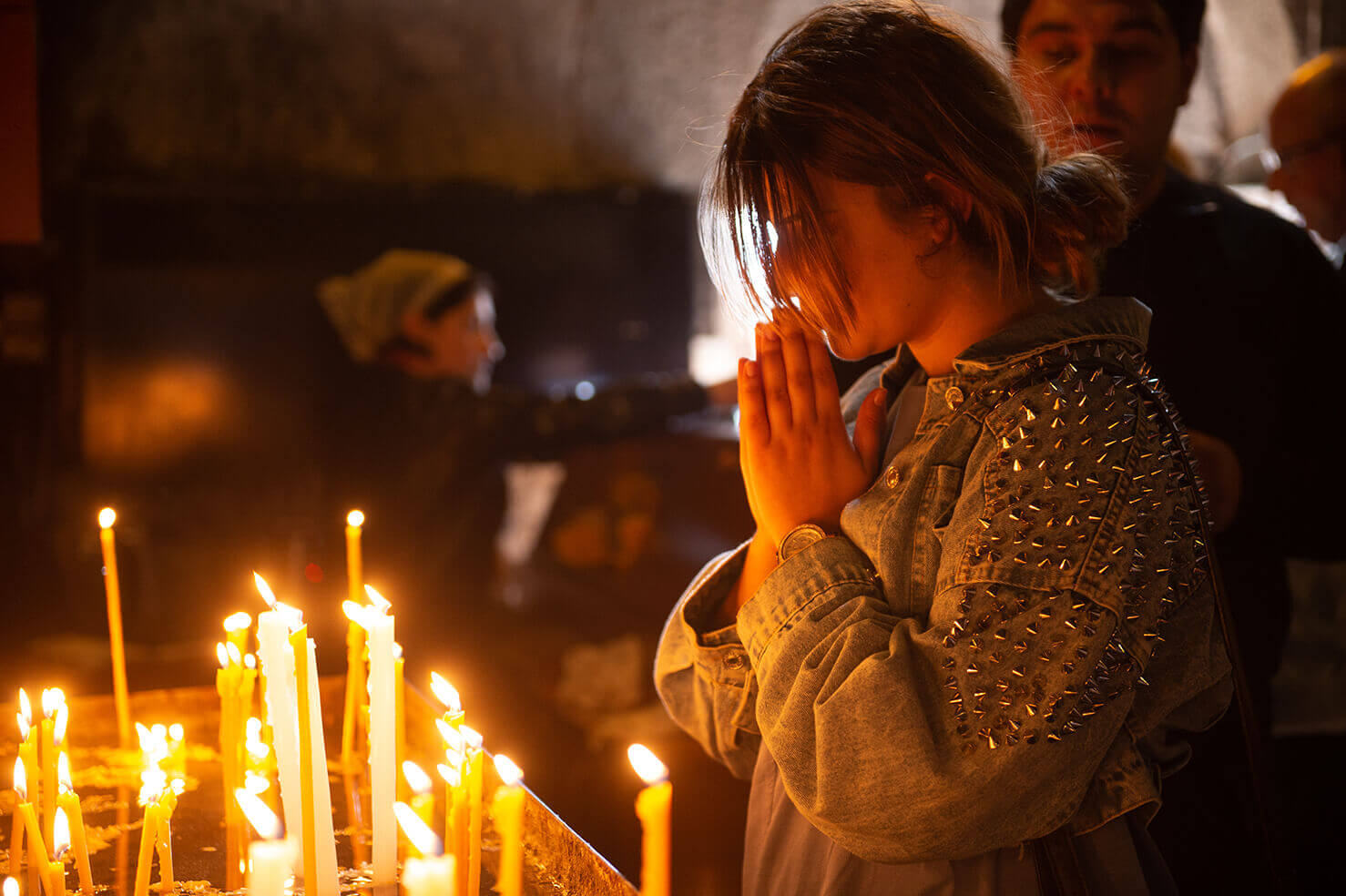
A woman prays in a church in Armenia.
“It depends on the method that you use. You can also see it as an advantage that Armenian people consider themselves Christians. They have that heritage, and you can take that as a starting point to bring them to the Gospel. Take for example our Christian holidays. All Armenian people are celebrating Christmas and Easter. This opens opportunities to teach them about the biblical meaning of these holidays,” Alex says.
He continues, “But you need to be wise! If people feel you somehow reject their values, they will immediately stop you. Armenians are fond of their traditions. If you bluntly tell them these traditions are false, they will close the door in your face. You should look for elements in the traditions that can be linked to the Bible and start from there. Our evangelists must be very careful in the methods they use.”
Building Relationships
“This Easter, we organized a children’s celebration, where we invited both children and their parents. We did a puppet theater, where we told about Jesus in a simple way, and the children participated in the program with poems and songs,” Arman says. “We had a sermon, but a short and simple one. It was easy for the visitors to grasp. And we were there to talk to the people. It was simple, but effective. It worked much better than mass evangelism events like we used to do out on the streets. That’s not very fruitful these days in Armenia.”
“Why is that?” I ask.
“People don’t respond. We have tried mass events several times; we have also shown the Jesus Movie, and after that movie, about 10 or 12 adults repented. But again, no one came to church. That’s why we now invest in friendship, in a face-to-face relationship,” he says.
“I indeed think that’s the most effective approach nowadays in Armenia,” Alex concurs, “because people need to trust you. One of the reasons is that for over 25 years, our political leaders have made all sorts of promises, without doing anything. The result is that Armenians are slow to believe promises, and reluctant to listen to speeches. They need to know you personally, see your behavior as a believer, in order to trust you. And as traditional Armenian Christians, they will also suspect you of turning them into sectarians. Especially Armenian men—they won’t show up in church before they trust you.”
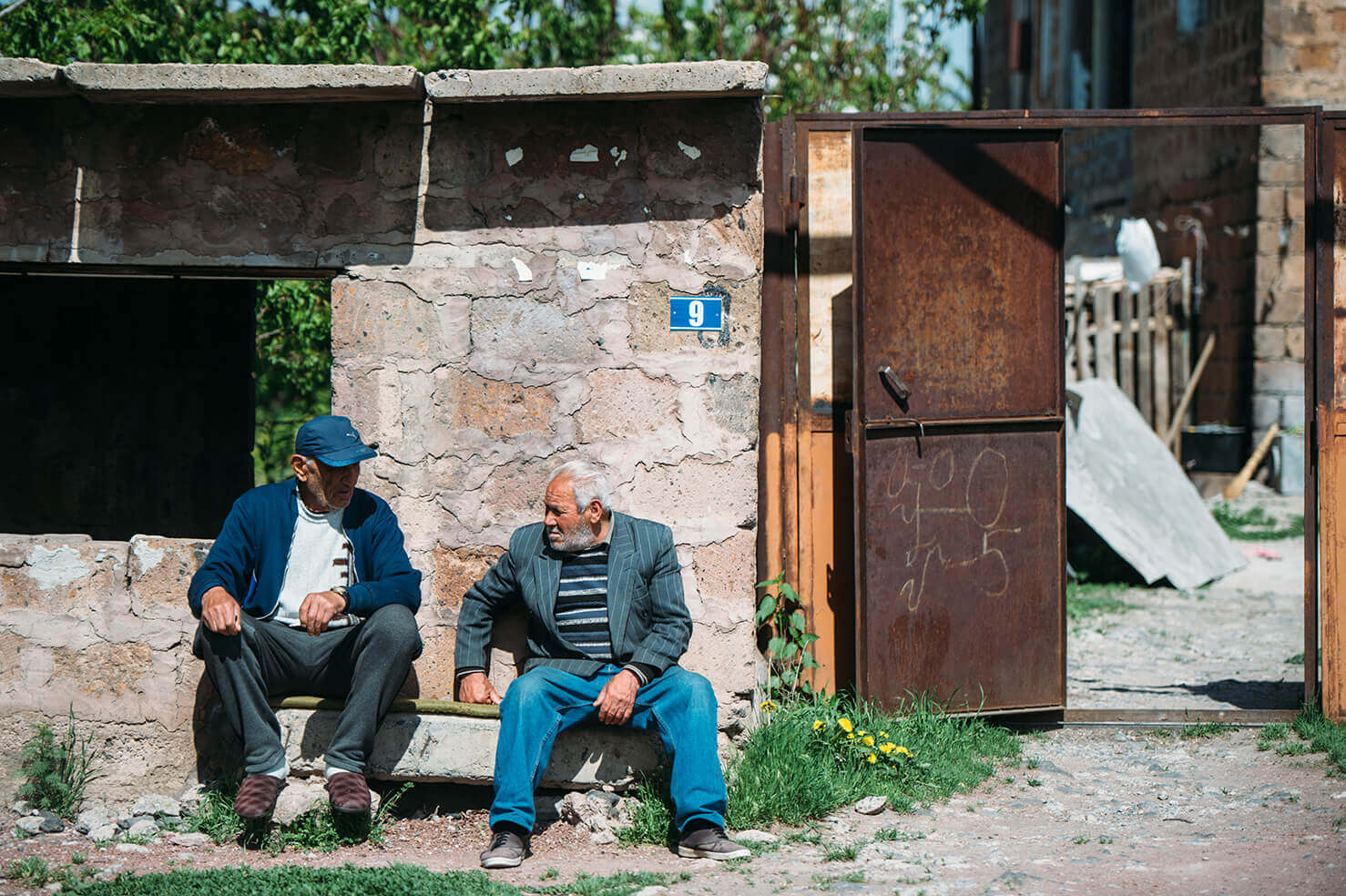
Building ministry relationships in Armenia are difficult, especially with men.
Compliment
We take a sip of our coffees, and I use the opportunity to compliment Lilit on the way she led the children’s group. I ask, “How do you like using the materials of Bible League in your ministry with children?”
“These booklets are clear and simple,” she replies, “and the children understand and love them. It’s also good that there are crossword puzzles and other games in the books, which greatly help the children in memorizing the Bible stories.” The young lady seems shy, probably because she isn’t able to express herself in English. To put her at ease, Pastor Arman takes over again.
“Lilit is among our first fruit from 2007 when my wife and I organized a children’s camp,” he says. “From that camp, we started our first children’s group. Together with her brother, her sister, and a friend, Lilit joined that group. From the original 45 children, only these four stayed after two months. Later, Lilit and her sister joined the church and got baptized, and ever since, she’s been God’s faithful servant. By the way, she has a University degree in pedagogics. She chose that subject because she already was serving in our church as a children’s teacher. Now, she works in a school as a social psychologist.”
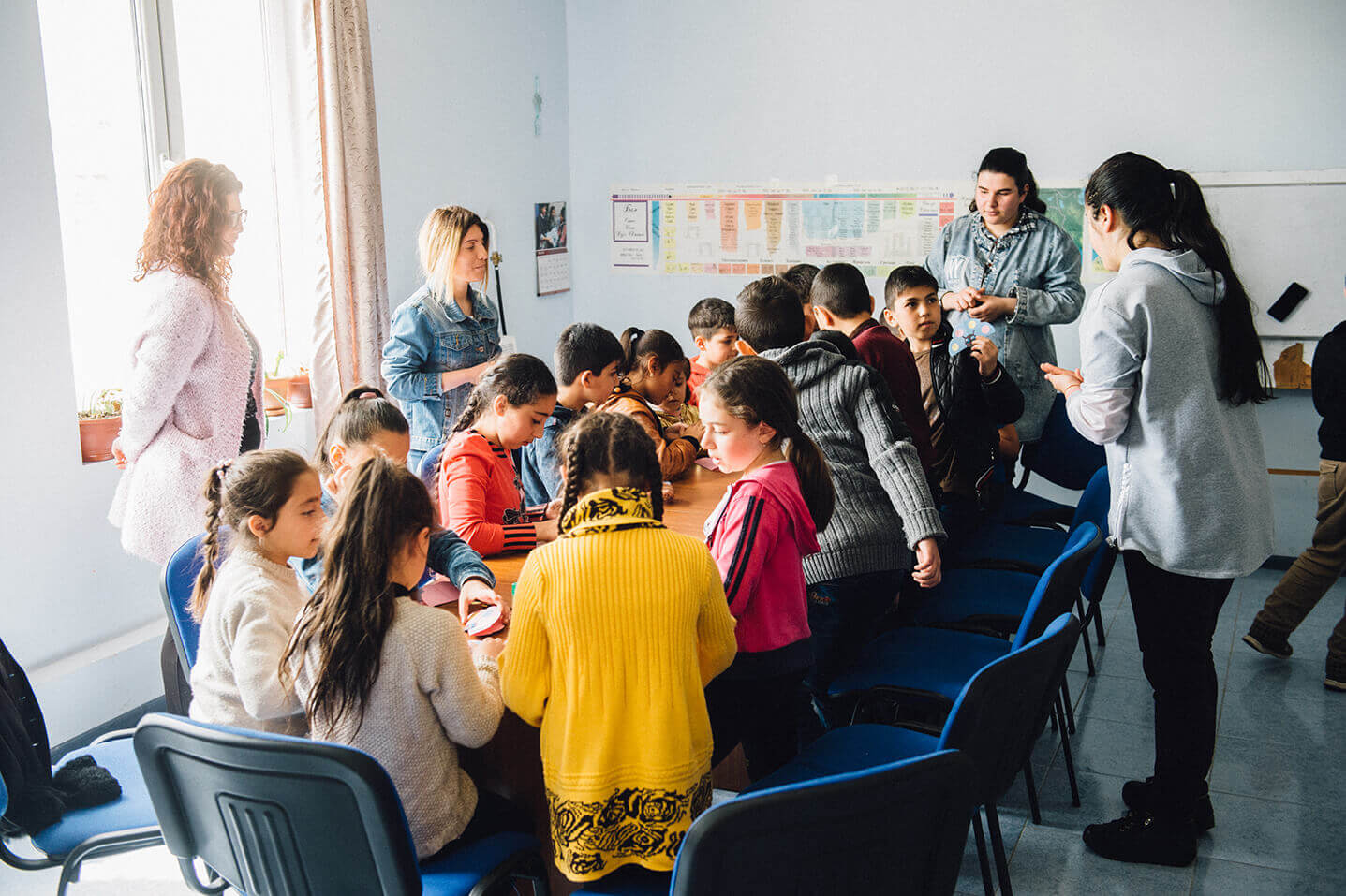
Lilit, standing second from left, leads children’s ministry.
The Whole Family
Lilit just smiles. Seated next to her is a lady who assisted her during the children’s class. Having remained silent so far, she now wants to say something. “I’m a mother of two boys who both are in the Project Philip children’s group,” she says. “Often, they leave their school’s homework and prefer to do the Bible study lessons. And they get the whole family involved in it! My mother, myself, and the others at home. We are doing the children’s Bible lessons all together. And when the boys come home from the Bible study, they can’t wait to tell their grandparents and other family members about what they learned.”
The lady says it with such an enthusiasm that we all are delighted. It was difficult to reach the parents, Arman had said. But it’s happening in Armenia, from the mouths of the little children! Or, like Alex sums it up: “The Word of God is like a seed, and it will definitely bear fruit!”
*Name changed for security purposes.
Story by Anton de Vreugd, Communications Specialist for Bible League International. Anton is located in the Netherlands and has been with Bible League since 2002. He travels across Europe, the Middle East, and parts of Africa to cover ministry stories. All travel for this story was done prior to COVID-19.




